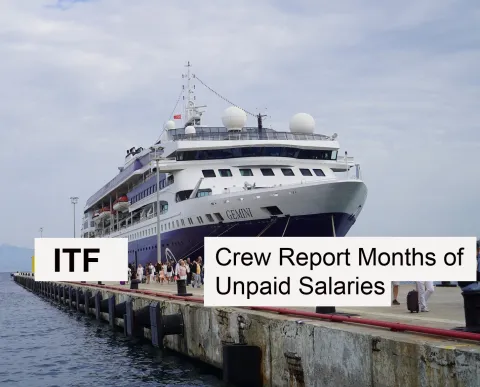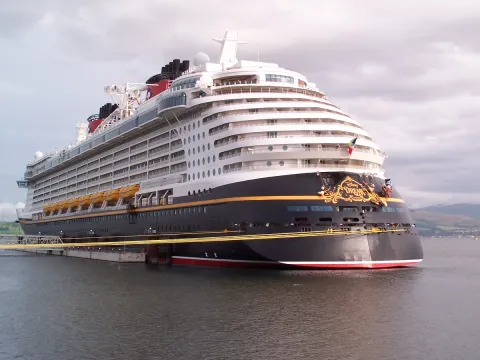
During the International Maritime Summit on Crew Changes hosted by the UK yesterday, government representatives from 12 countries express their appreciation to seafarers and pledge to urgently resolve issues that have arisen due to the COVID-19 pandemic and crew changes. The Summit was attended by government representatives of Indonesia, Philippines, Denmark, Germany, Greece, Indonesia, Netherlands, Norway, Philippines, Saudi Arabia, Singapore, UAE, UK and US. The event, discussed the exchange of crew policies in international shipping during the Covid-19 pandemic to ensure seafarers affected by the pandemic can change and be safely repatriated home.
Addressing all IMO members Kitack Lim, IMO Secretary-General said “It is time to act for seafarers. Safe ship operations and crew wellbeing should not be compromised. The humanitarian crisis seafarers face has implications for all of us, for the world economy and for the safety of life at sea and the environment. I have spoken many times of our "voyage together". Never has the spirit of cooperation and collaboration been more important than it is now.
The joint statement says that seafarers duty cannot continue to be extended and need to be kept to a duration of less than 12 months, as set out by the Maritime Labour Convention (MLC) 2006, as amended – the global shipping industry estimates that, since March 2020, only about 25% of normal crew changes have taken place; apart from the humanitarian and crew welfare concerns, and issues of regulatory compliance, there is an increasing risk that fatigue and mental health issues could lead to serious maritime accidents.
The signatory governments issued a joint statement calling on all IMO member to:
1.Encourage all International Maritime Organization (IMO) states to designate seafarers as “key workers” providing an essential service, to facilitate a safe and unhindered movement for embarking or disembarking a vessel.
2.Consider the legal possibilities for accepting internationally recognised documentation, such as International Convention on Standards of Training, Certification and Watchkeeping for Seafarers certificate, the International Labour Organization (ILO) Seafarers’ Identity Document (ILO 185) and a letter by the seafarers’ company, carried by seafarers as evidence of their status as key workers, and purpose of their travel and movement for crew changes.
3.Engage, nationally, multilaterally and bilaterally, in discussions about implementation, to the maximum extent possible, as appropriate to the circumstances that may prevail nationally or locally, of the recommended framework of protocols for ensuring safe ship crew changes and travel during the coronavirus (COVID-19) pandemic, circulated to IMO member states as Circular Letter No.4204/Add.14 on 5 May 2020.
4.Review, working in conjunction with our health, immigration and other relevant ministries, agencies and authorities, the necessity of any restrictions that may continue to apply, at national and/or local level, to the movement and travel of seafarers for the purpose of conducting ships’ crew changes. This includes the possibility of allowing exemptions from quarantine or similar restrictions in accordance with relevant international rules or health regulatory guidelines.
5.Consider, in liaison with our relevant ministries and authorities, including those responsible for immigration, temporary measures including (where possible under relevant law) the possibility of waivers, exemptions or other relaxations from any visa or documentary requirements that might normally apply to seafarers.
6.Explore, in cooperation with the International Civil Aviation Organization and the aviation industry, ways of increasing access, as soon as possible, to commercial flights to and from the principal countries of origin of seafarers and the airports in reasonable proximity to those seaports where crew changes are effected.
7.Urge all IMO members to take any necessary measures, within their area of jurisdiction, to ensure seafarers affected by the COVID-19 pandemic enjoy safe crew changes as well as repatriation to their home countries or to their place of ordinary residence.
The Summit demonstrates the critical need to prioritise the continued functioning of global supply chains to ensure the resilience of the world economies, and the importance of facilitating the safe and efficient operation of the maritime transportation system, which moves over 80% of global trade.
“Together with our industry partners and colleagues in the World Health Organization, and other UN agencies, like ICAO, ILO, UNCTAD, WTO, IMO has been developing and issuing practical advice and guidance on a variety of technical and operational matters to facilitate international trade, coordinate responses and facilitate crew changes.
The wide-ranging protocols contain recommendations to maritime administrations and other relevant national authorities, such as health, customs, immigration, border control, seaport and civil aviation authorities. They address the roles of shipping companies, agents and representatives, crewing agencies and the individual seafarers themselves, and also extend to seaports, airports and airlines involved in travel operations for ship crew changes.” Said Kitack Lim, International Maritime Organization Secretary-General.












